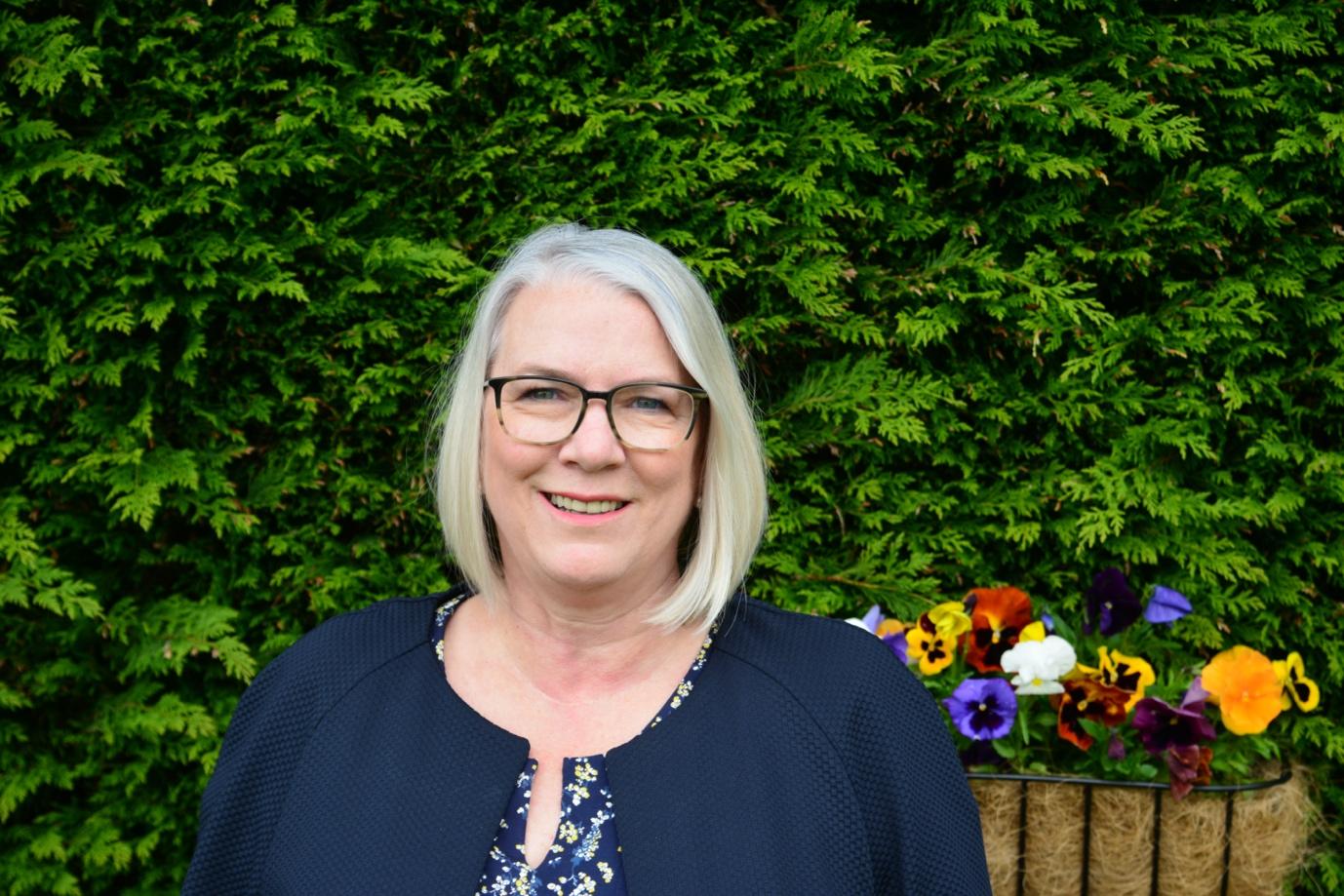FIGT member Sarah Korbus tackles this month's Focus, Grief, by sharing with our community how to talk about loss and the feelings around it, and how we may become stronger for it.
.png) By Sarah Kobrus
By Sarah Kobrus
For it’s our grief that gives us our gratitude,
Shows us how to find hope, if we ever lose it.
So ensure that this ache wasn’t endured in vain.
Give it purpose, use it. -Amanda Gorman
“Mummyyy?” Jonny(4) piped up from the back of our Land Cruiser on the way to school in Doha
“Yes, Jonny.” I wasn’t really listening, focusing on surviving the mad rush hour traffic.
“You know yesterday… ah’mmnn talking bout you being poorly… and having hoperation?” He now had my full attention.
My eyes locked with his in the rear-view mirror as he asked a bombshell of a question. “Mummyyy. Are you going to die?”
When I moved to the Middle East over twenty years ago, talking to my three kids about cancer was definitely not in my travel plans. Like most parents, I wanted to protect them from loss and grief-and definitely from pain. Yet, before they reached double digits, they’d been with both grandfathers when they suddenly died, seen their mum become very ill and were living in their 3rd country: a cocoon of compounding loss.
Talking about tough stuff
Talking about loss and grief isn’t easy, often uncomfortable and even painful. Our urge to dodge pain is a natural human reaction. But, comes at significant cost. As the renown mental health expert, Dr Gabor Mate, says. “When we flee our vulnerability, we lose our capacity for feeling emotion.”*
As well as being an accompanying partner and TCK mum, I’ve been a social worker and counsellor for over thirty years-talking about the toughest stuff with the most vulnerable. One thing I know about grief is that if loss is hidden, unnamed, unconsciously experienced, this is when it’s harmful for our mental, emotional and physical health. Numbing or hiding the tough stuff also dulls and blunts the good stuff. We experience loss in our bodies, minds and souls because it’s so closely related to all that we believe and value; that central paradox in life - we grieve because we love.
The transforming power in loss and grief
Because loss is part of any change, globally mobile folks have so many everyday opportunities to practise talking about tough stuff. When loss and grief are explored openly, honestly and gently, they can become an energetic force for good, building deeper connection and compassion within ourselves and with others. This also show us how to build robust resilience; because practising on smaller losses means we will know how to handle the bigger stuff that everyone will face in life.
A therapeutic coaching tool that has helped my family do this is Emotional Logic (link below). This is a system of practical coaching tools that gave us a shared emotional language and a guidebook to navigate through loss.
How to talk about tough stuff 101
- Be prepared for grief, educate yourself about loss then pass this on to your loved ones.
- Keep it simple.
- It’s ok to say. “I don’t know-yet.”
- Don’t make any promises that you may not be able to keep.
Back to that car journey. My first reaction was an inner cry, **** why didn’t he ask me last night? But thankfully, my professional voice kicked in. “That’s such a good question, Jonny! Let’s pull over somewhere safe, then we can talk.” As I looked for a layby, Beth (9) jumped in.
“You know what, Jonny…” She tickled him until he squealed. “We’re all going to die!” The last bit was delivered with such over the top drama that they both burst out laughing. Which was too much for Alice (5). Her eyes filled up over her constantly sucked thumb.
Pulling her into my lap, I bravely cheered. “But not yet!”
Who knew that the chats we’d had, the books we’d read and pictures we’d drawn after the loss of their Grandfather’s would return to bless me in quite this way? We were prepared. We had the words and the safe place in our relationship to talk about anything.
The useful purpose of loss and grief
This journey through loss-that I wouldn’t have chosen for my kids-expanded their hearts and their souls. Their resilience grew because of how we embraced our pain, with the bonus that their compassion for others also flourished. My TCKs are now in their twenties; loss and grief gave them the purpose that they use every day. They’ve all chosen careers that help others; a teacher, trainee art therapist and life sciences undergraduate; alongside plotting to resume their globally mobile life as soon as the world opens up again.

Reference
*Gabor Mate: In the Realm of Hungry Ghosts
Resources
https://www.emotionallogiccentre.org.uk
https://www.macmillan.org.uk


Sarah is a UK registered social worker, certified counsellor and Emotional Logic coach, specialising in loss, grief, trauma and resilience. She has a private coaching practice, details below and loves working with accompanying partners, older TCK’s and ATCKs.She is also a writer and will publish Good Grief: 7 Stepping Stones to Peace, Hope and Wholeness for the Globally Mobile later this year. She was awarded a publishing prize with Jo Parfitt, Summertime Publishing during the pandemic and is working on her memoir Count Only Sunny Hours. Sarah has lived in America, Bahrain, Qatar, France, Holland and is currently in Cumbria, England. She is presenting a tabletop talk, ‘Recover, Reset, Renew your Resilience,’ introducing the Emotional Logic method during the FIGT conference in March 2022.
sarah@sarahkobrus.com
https://sarahkobrus.com

